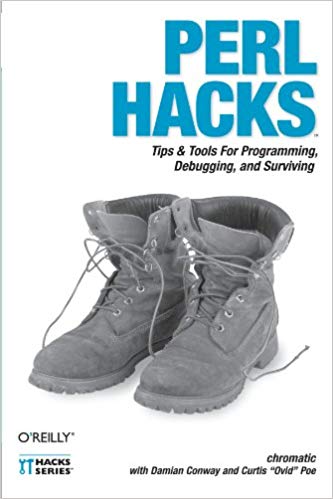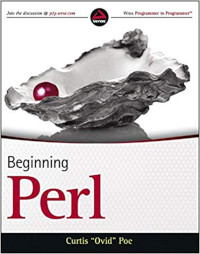As every developer learns, it’s easy to get naming wrong. For example, if you
have a variable named temperature, but your system handles both imperial and
metric, is that temperature in Fahrenheit or Celsius? Getting that wrong could
lead to all sorts of problems. A similar situation exists for subroutine and
method names. What does the method scale do? Who knows? If it’s named
scale_size, you have a much better idea.
But let’s discuss predicate methods in object-oriented code. A predicate method is a method that returns true or false. In Ruby, you can end a method name with a question mark and by convention, it should return true or false.
class Point
@@number_of_points = 0
def initialize(x,y)
@x = x
@y = y
@@number_of_points += 1
end
def self.too_many?
return @@number_of_points > 2
end
end
point1 = Point.new(3,3)
point2 = Point.new(4,0)
puts Point.too_many? # prints false
point3 = Point.new(4,8)
puts Point.too_many? # prints true
This is a lovely feature because writing if Point.too_many? reads like a
question. However, most popular languages tend to only allow alphanumerics and
underscores in method names. So in a recent code review for our free-to-play
game, Tau Station (Sign up here! It’s fun. ), I
called out a case where a predicate method was poorly named. Sadly, it was a
predicate method I had written a long time ago and it’s a mistake I still make
today. The following examples are made up, but keep to the spirit of the issue.
Quick: what does the following bit of code do? Make a guess. vip stands
for “very important person” and means the character has used a VIP pack and they
receive in-game benefits.
if ( $character->vip ) {
# do something
}
Does vip return how much time is left on their VIP status? Does it return a
VIP pack? Does it return a boolean indicating if the character has VIP? We can
rename that function to make it very clear.
if ( $character->is_vip ) {
# do something
}
Now it’s crystal clear what that means. Predicate functions should generally
start with a verb that implies true or false: is_, can_, has_, and so on.
So it was with a bit of surprise on a later code review that I read two
developers disagreeing about a predicate method name. One named it
can_purchase and the reviewer was suggesting allow_purchase. They didn’t
budge in their respective positions and both are very good developers, so I was
asked to take a look.
In glancing at the code snippet, I immediately agreed that the predicate method
should be named can_purchase. But after I wrote that on the review, I had
doubts because the answer was too obvious. Why on earth would their be a
dispute about this? I decided to dig further. The problem stemmed from an
unfortunate feature provided by Moose (an
object-oriented framework for Perl) and perhaps a subtle misunderstanding of
object-oriented code.
This is worth an explanation of the confusion.
The code in question was providing an API response for purchasing a visa to visit Gaule-affiliated stations . The API returns actions you can take regarding a purchase. However, if the character meets certain conditions, the API call should provide additional information allowing a purchase of the visa, including its duration and price.
The code sort of looked like this:
package Veure::Model::API::Visa;
use Veure::Moose;
use Veure::Types qw(Bool);
use Veure::Util::Data qw(:json);
with qw(Veure::Model::API::Role::Composable);
has can_purchase => (
isa => Bool,
required => 1,
);
sub _build_api_content ($self) {
my $character = $self->viewer;
my %api_response (
area_actions => {
renew_visa => { available => json_false },
purchase_visa => { available => json_false },
},
);
if ( $self->can_purchase ) {
# add additional data
}
return \%api_response;
}
__PACKAGE__->_finalize;
That’s the code that I glanced at which made me think that can_purchase is
a perfectly acceptable predicate method, until I realized the mistake I made.
Let’s take another look at can_purchase.
has can_purchase => (
isa => Bool,
required => 1,
);
In the Moose OO framework, the above creates a method named can_purchase. In
our version of Moose, that method is read-only, it returns a boolean, and it’s
required to be passed to the constructor. So far, so good.
However, the interface for the module is called in a very standard way:
return Veure::Model::API::Visa->new(
viewer => $character,
can_purchase => $can_purchase
)->api_content;
The can_purchase data isn’t intended to be exposed to the outside world. The
method should have been written like this:
has can_purchase => (
isa => Bool,
reader => '_can_purchase',
required => 1,
);
I’ve written before about needing to keep interfaces small and here we were, violating that rule. Unfortunately, Moose, by default, provides public methods for all instance data and it gets annoyingly hard to avoid this. It’s annoying enough that I often don’t even call that out on code reviews.
This should not be a predicate method. Instead, this is a constructor argument
that directs the instance on its behavior. It’s an order, giving a command
to the instance. By convention in our code, we like to write our constructor
arguments such that orders use active verbs to indicate what’s going on.
This is why the reviewer suggested allow_purchase.
This might seem petty or trivial, but the distinction is important because not making said distinction can lead to subtle errors in reasoning. In this case, a predicate method returns a boolean indicating something about the state of the object. It’s only doing a single thing. But objects aren’t just about state. They’re state plus behavior. Predicates return information about the state after the behavior has occurred. This constructor argument tells the object to do something before the behavior has occurred. They look similar, but they’re not.
Because Moose makes everything public by default (because it’s hard not to do
this in Perl), including creating methods for your instance data, it’s natural
that can_purchase seems like the correct name since it’s public and asking if
the character can purchase a visa. But the consumer is making an API calls and
receives a data structure, not the instance itself. The data it receives tells
the consumer what information to present, not a predicate method call.
I expect that when the Corinna OOP system finally becomes core to Perl, much of this confusion will go away.
class Veure::Model::API::Visa :does(Veure::Model::API::Role::Composable) {
use Veure::Util::API qw(format_price);
use Veure::Util::Data qw(:json);
field $allow_purchase :new;
method build_api_content :private () {
my %api_response (
area_actions => {
renew_visa => { available => json_false },
purchase_visa => { available => json_false },
},
);
if ( $allow_purchase ) {
# add additional data
}
return \%api_response;
}
}
In the above, $allow_purchase is not exposed in the interface and it’s much
clearer what its role is.


